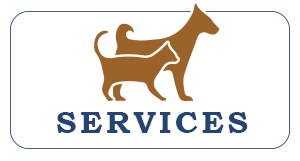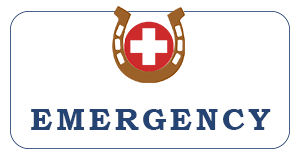Frequently Asked Questions
After-Hours Emergencies
When veterinary care is needed after business hours, a veterinarian is only a telephone call away. Please call us at 423-753-5868 if you need during business hours veterinary care. Please click here to see our approved after-hours emergency centers.
Appointments
In order to allow sufficient time for our patients, we see patients by appointments only. Please call us at 423-753-5868 to set up an appointment that is convenient with your schedule.
Prescription Refills
So that we may accurately refill your pet’s medications we request as much notice as possible when refills are needed.
Fees
Fees charged for services are based upon what is needed to maintain the high quality of care we are proud to provide. Payment is required at the time service is rendered, unless prior arrangements have been made. For your convenience, we accept cash, check, Visa, MasterCard and American Express.
Vaccinations
Rabies vaccine. The first Rabies shot your pet receives is good for 1 year. Subsequent Rabies vaccinations last 3 years.
DHPPLV vaccine. This is a “5-way” canine vaccine that vaccinates against canine distemper, parainfluenza, parvovirus, hepatitis and leptospirosis. Distemper and parvovirus are often times fatal, especially in puppies and is why it is boostered multiple times. Puppies can be vaccinated as early as 6 weeks and are boostered every 3 weeks until 16 weeks of age. Adult dogs are then revaccinated yearly.
FVRCP Vaccine. This is a “4-way” feline vaccine that vaccinates against feline distemper (aka panleukopenia), rhinotrachetitis, calici, and chlamydia. Kittens can be vaccinated as early as 6 weeks and are boostered every 3 weeks until 14 weeks of age. Adult cats are then revaccinated yearly.
Feline Leukemia Vaccine. Feline Leukemia Vaccine is recommended for kittens and cats that are of “high risk,” such as indoor/outdoor cats/kittens.
Lyme Vaccine. Lymes is a disease transmitted by ticks and the vaccine is recommended for dogs and puppies that are considered “high risk.” This includes dogs that spend time outdoors in wooded or grassy areas, such as dog parks, campgrounds, hunting fields/meadows/ponds, and/or dogs that visit Lyme-endemic areas of the Northeast, Mid-Atlantic or upper Midwest.
Bordetella. Also known as “kennel cough”. We recommend the oral vaccine at 12 weeks then annually thereafter.
Heartworm Prevention. Heartworm disease is a serious disease transmitted by infected mosquitoes and if left untreated can be fatal. We recommend your dog and cat be on year round heartworm prevention starting at your puppy’s or kitten’s first visit. Your dog will need to be tested with a simple blood test for heartworm disease on an annual basis.
Flea and Tick Control. We recommend using flea/tick prevention all year round in this area.
When is the best time to spay or neuter my pet?
We recommend that you have your pet spayed or neutered at 4-6 months of age. This recommendation provides the best protection for your pet. There are still benefits to having a pet spayed or neutered at advanced ages as well, just be sure to disclose the pet’s age and general health status when scheduling an appointment.
When does my pet need blood work?
We recommend annual blood work for every apparently healthy adult patient and more frequent bloodwork for some individual pets based on age, health status, and current medications. Regular lab testing helps detect diseases early, before clinical signs develop. In many situations, early detection is essential for effective treatment. The type of blood work will be determined specifically for each pet depending on his or her individual needs. This is convenient to do at the time of the annual heartworm test, but can be done at any time of year.
How many months should my pet be on Heartworm prevention medication?
We recommend that your pet be on heartworm prevention for the entire year. It is administered one time per month either by pill or by topical application. Depending on the specific product you choose for your pet, heartworm prevention medication can prevent other parasite infestations including internal parasites (intestinal parasites) and external parasites (fleas and ticks). Some of these parasites can be communicated to people! A simple blood test will get your pet started.
Why does my dog need a blood test before purchasing heartworm prevention?
Dogs could get sick (vomiting, diarrhea, and/or death) if placed on heartworm prevention when they have heartworm disease. Even if they have been on heartworm prevention year round, there is always the possibility that the product may have failed for various reasons (your pet spit out the pill, did not absorb the pill appropriately, topical medicine was not applied properly, forgot to administer medication on time, etc.) and the earlier we can treat your pet for heartworm disease, the better the prognosis. ALL companies will guarantee their product if you use the heartworm prevention year round and are performing an annual heartworm test.
My pet never goes outside so does it really need heartworm prevention?
Yes! Heartworm disease is transmitted through mosquito bites and mosquitos often get inside houses.
Doesn’t the fecal sample test for heartworms?
No. Heartworm disease is a blood-borne disease that is transmitted through mosquitoes. A simple blood test will confirm whether or not your dog has heartworm disease.
How can I prevent fleas?
There are many medications available for the treatment and prevention of fleas. We always recommend that you use products purchased from veterinary clinics, as some over-the-counter products can cause severe adverse reactions or even death. Medications are now available in a combined form with the monthly heartworm medication, which reduces overall cost.
Why does my pet need a dental cleaning and how often should this be done?
Dental disease involves more than just bad breath. When bacteria irritates the gum line, the gums become inflamed (gingivitis or gum disease). Left untreated, this leads to periodontal disease, which causes loss of the bone/support structure of the tooth and subsequent loose teeth. In addition, the bacteria is released into the blood stream, increasing the chance of systemic infections which can cause harm to organs such as the heart, liver, or kidneys. How often your pet needs his/her teeth professionally cleaned depends on many factors. Your pet’s teeth and mouth should be examined on a regular basis to detect disease. If you notice bad breath, decreased appetite, chewing abnormally, increased drooling or signs of mouth pain, your pet should be examined by a veterinarian as soon as possible to rule out tooth root abscess or other dental disease.
How do I know if my pet is in pain?
It can sometimes be difficult to tell! If you are not sure, but suspect your pet may be hurting or is just not acting right, call to have an examination. Some signs of pain, such as limping or whimpering, are obvious. Other signs are more subtle and can include: not eating, a change in behavior or normal habits, being more tired or having less energy. Of course, these symptoms can be caused by many problems! Therefore an examination by a veterinarian is important to help determine what may be wrong.
What is kennel cough?
Canine Bordetella is a respiratory disease called Infectious Tracheobronchitis (kennel cough). It is easily transmitted through the air. It is a viral infection complicated by bacteria. Both oral and injectable vaccines are available.
What is Lepto?
Leptospirosis is a bacterial disease. It is spread by wildlife (raccoons, skunks, opossums, squirrels, rats) and domestic animals. It can be passed to people. Canine Lepto has risen dramatically in recent years. Infected animals shed Lepto bacteria in the urine. To prevent Lepto in your dog, discourage your pet from drinking standing water and vaccinate yearly.
Why does my pet need to be admitted before a surgical procedure?
In preparation for the procedure, your pet will receive:
- Comprehensive physical exam by the veterinarian
- Pre-anesthetic bloodwork (if not completed in advance)
- Premedication to easy anxiety and to smooth induction of anesthesia
This all needs to be complete BEFORE your pet’s scheduled procedure time.
What should I bring for my pet’s hospital stay?
You may bring a toy, blanket or special item for your pet. We will do our best to make sure belongings stay with your pet; however these items occasionally go missing in the laundry, so we cannot guarantee their return.
Is anesthesia safe for my pet?
While anesthesia always carries inherent risks, at Jonesborough Animal Hospital we make every effort to keep pets as safe as possible under anesthesia. We thoroughly screen all of our patients by performing exams before every anesthesia. We also utilize multimodal pain management, which reduces the amount of anesthesia drugs required and minimizes post-operative pain. We closely monitor our patients under anesthesia, using both digital monitors and manual recording of vital signs throughout all procedures.
When my pet is having surgery, when should I expect an update on my pet?
If everything goes as planned, you will receive a call when your pet is in recovery from the procedure.
If there are any abnormalities on pre-anesthetic exam or blood work, you will receive a call prior to the procedure in case we need to change plans.
Remember that no news is good news and you will be contacted immediately should the need arise.
After surgery, when will my pet be able to go home?
All pets undergoing outpatient surgical procedures will be discharged to the owner by the end of the business day. If your pet recovers quickly and is ready to go home sooner, we will inform you during the post-operative phone call.
Answers to common questions after your pet goes home after surgery:
Appetite
Decreased appetite is very common during illness or after surgery. If your pet does not seem eager to eat the day of surgery but has recovered well otherwise, simply withhold food and offer a meal the next morning. If your pet’s appetite remains decreased, please contact us for further evaluation and recommendations.
Bandage, cast or splint is wet, soiled or off
If the bandage becomes soiled or damp, or gets chewed off, please do not re-bandage at home. Duct tape and other items can trap moisture within the cast/bandage causing inflammation of the skin and tissues. In some cases, bandages inappropriately applied at home can even cut off the circulation to the foot. Call us immediately if you have concerns about your pet’s bandage. Confine your pet to a crate, a single room or similar small area until you can call us and we can advise you regarding whether the bandage needs to be replaced. After a cast or splint is first removed, it may take 1-2 weeks for your pet to become accustomed to using the leg without the splint.
Crying/whining
Although vocalizing can indicate discomfort, it is usually not a sign of pain (instinctively most pets will not vocalize because in the wild, this would attract predators!). Often, pets vocalize due to the excitement or agitation that they feel on leaving the hospital and returning to their familiar home environment. If crying or whining is mild and intermittent, you may simply monitor the situation. If vocalization persists, please call us for advice. In some cases, a sedative may be prescribed or pain medication may be adjusted.
Diarrhea
Diarrhea may be seen after hospitalization. This can be caused by change in diet but is more commonly caused by the stress of being away from home. Certain medications prescribed to your pet may also cause diarrhea. If the diarrhea is bloody, lasts longer than 12-24 hours, or if your pet becomes lethargic or vomits, please contact us immediately. You can purchase a nutritionally complete bland food from us available in cans or kibble. Alternatively, you may feed cooked/steamed rice mixed with an equal volume of either low-sodium chicken broth, boiled chicken, chicken baby food or cooked turkey. Very lean, boiled hamburger meat can be substituted as well. Feed small meals every 4-6 hours. We do NOT recommend using any over-the-counter medication to treat the diarrhea. Please call us if there are any questions or problems.
E-collar
We rely on you to keep the E-collar on your pet. While they may not enjoy it initially, they will enjoy it even less if they have to come back to our office for a recheck visit to repair an incision that has been chewed open! Most pets become accustomed to the collar within one or two days and they can eat, sleep, and drink with it on. We are counting on you: please keep the E-collar on your pet.
Injury to surgical site
If for any reason you suspect that your pet has reinjured the surgical site, confine your pet and call us immediately for advice.
Medication Refills
If you have given your pet all the pain medication prescribed and you feel your pet still has discomfort, please call and we will be happy to discuss refilling the pain medication or providing additional prescriptions as needed.
Pain
Despite the medications we have prescribed, some pets will still show signs of pain at home, such as restlessness/inability to sleep, poor appetite, lameness or tenderness at the site of surgery. Please confine your pet to limit their activity. Then call us immediately so that we can dispense or prescribe additional medication or therapies as necessary to keep your pet comfortable.
Panting
This is commonly seen after surgery. It may indicate soreness but is often due to anxiety. Please call and we can help determine whether additional pain medication is advised. We will be happy to recheck your pet for your peace of mind.
Seroma (fluid pocket)
In any healing surgical area, fluid produced during the healing process may accumulate and form a seroma (fluid pocket). Fortunately, this is not painful and does not impair the healing process. Eventually, the body will reabsorb the fluid so if the seroma is small, we typically will leave it alone. If it is large, we may remove the fluid with a needle and syringe or even place a drain. If you notice a seroma developing, please call. We may wish to recheck the area to ensure there is no infection.
Urination
Some pets may urinate less after surgery or may seem to be unable to control urination. This is usually temporary and may be a side effect of medication, anesthesia drugs, or difficulty assuming “the position” to urinate. Please call if your pet has not produced urine for more than 12 hours. Many pets initially drink less after returning home, so expect less urination at first.
Vomiting
An episode or two of vomiting is occasionally seen after surgery or anesthesia. If the vomiting continues, blood is noted in the vomitus, or if your pet is not holding down any food or water, call to schedule a recheck of your pet by a veterinarian.





